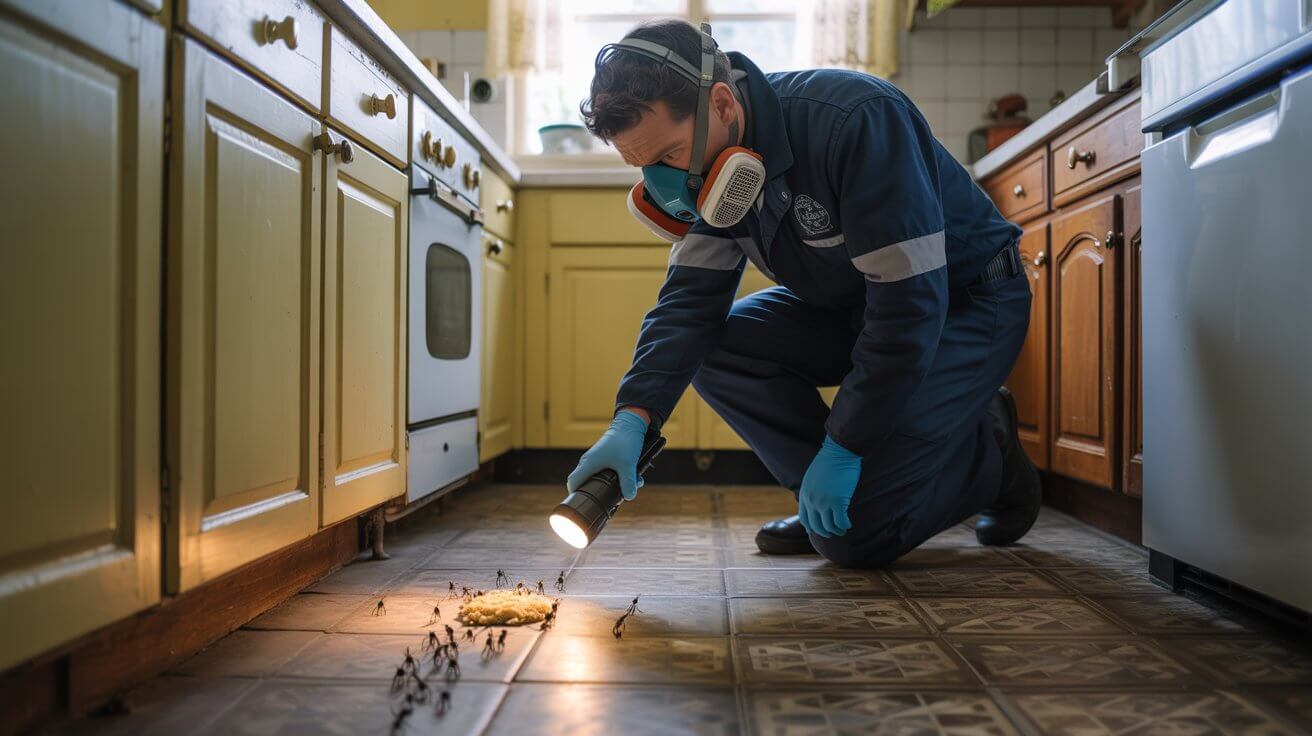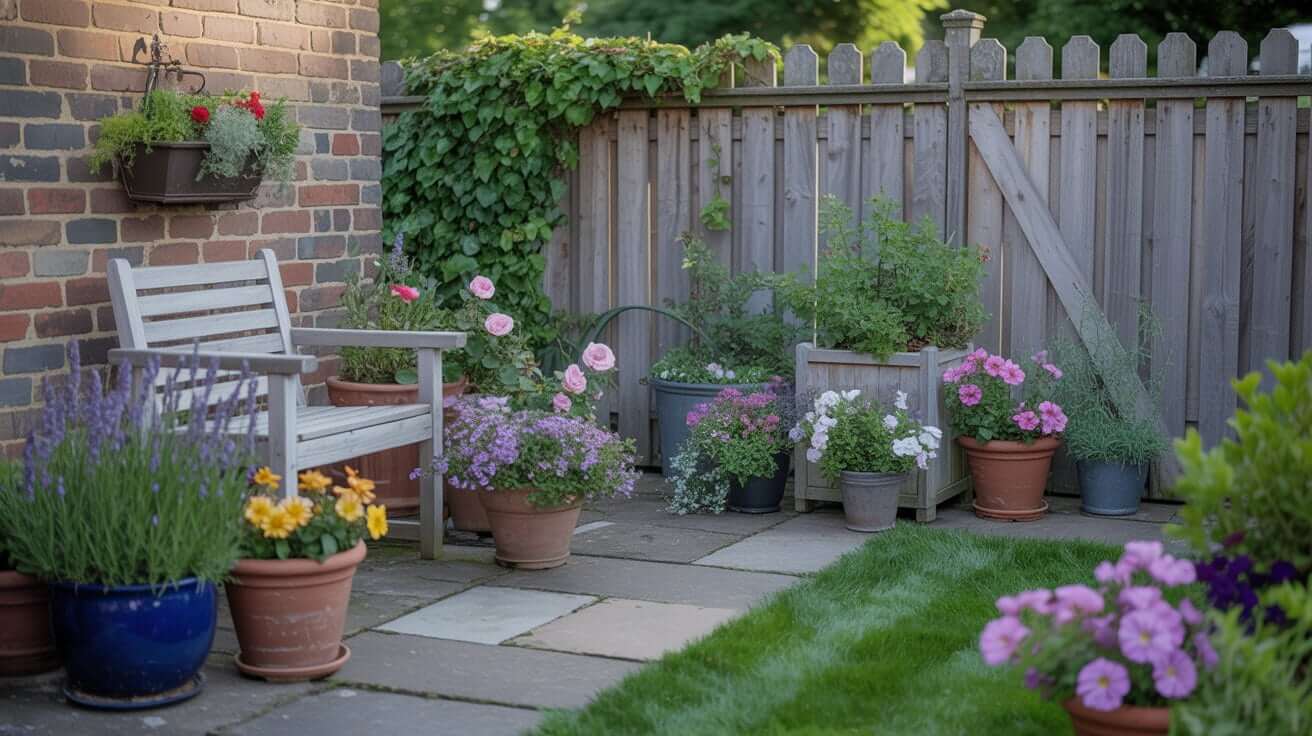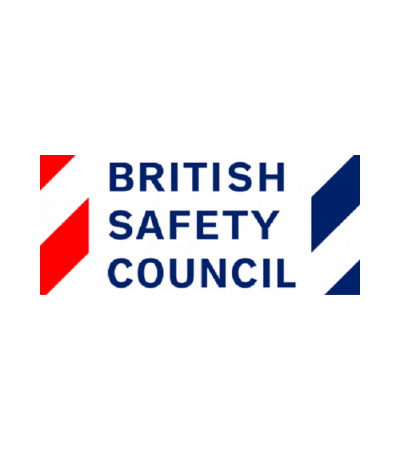Say Goodbye to Ant Invaders: As summer arrives and gardens come alive, many of us look forward to enjoying the outdoors. But while you relax on the patio with a cool drink, you might notice ants making their way into your home. In the UK, these tiny intruders can quickly turn from a minor nuisance into a full infestation if ignored. The good news is, you can prevent ant infestations with a few simple and proactive steps. In this guide, we’ll share six of the best ways to protect your home and keep it an ant-free haven all year round.
Statistics & Data
- The black garden ant (Lasius niger) is the most common household ant in the UK.
- Flying ant day usually happens in July, when millions of ants swarm across UK cities.
- Ant colonies can contain 5,000–15,000 ants, making prevention more effective than treatment.
- Pest control companies report a 35% rise in ant callouts during summer months in the UK.
| Prevention Method | Cost | Eco-Friendly | Effectiveness |
| Kitchen & Food Hygiene | Free | Yes | High |
| Sealing Entry Points | Low | Yes | High |
| Outdoor Maintenance | Low | Yes | Medium |
| Natural Deterrents | Low | Yes | Medium-High |
| Professional Pest Control | High | Partial | Very High |
Most Common Household Ant Types in the UK

Why Do Ants Invade UK Homes?
Ants are a common sight in UK homes, especially during the warmer months. These tiny creatures may seem harmless, but they can quickly become a nuisance when they enter our living spaces. But why do ants enter UK homes in the first place?
1. Searching for Food and Water
The primary reason why ants enter UK homes is to search for food and water sources. Like humans, ants need sustenance to survive and will go to great lengths to find it. They are attracted to sweet, sugary foods such as fruits, honey, and syrups, as well as protein-rich items like meat or pet food.
Even a few crumbs on the kitchen counter or spills on the floor can be enough to entice ants into your home. Additionally, some species of ants also require water for survival and will seek out damp areas such as leaky pipes or moist soil.
2. Seeking Shelter from Extreme Weather Conditions
During hot summers or wet rainy seasons, ants may seek refuge inside homes where they can find shelter from extreme temperatures or heavy rains. Cracks in walls or gaps around windows and doors provide easy entry points for these pests.
3. Nesting Opportunities
Some ant species prefer nesting indoors rather than outdoors due to favorable conditions such as steady temperatures and protection from predators. Carpenter ants, for example, make their nests in wood structures like furniture or beams within houses.
4. Following Scent Trails
Ants leave chemical pheromone trails wherever they go that act as a navigational guide for other members of their colony. If an ant finds a food source within your home, it will leave behind a scent trail that will attract more ants to follow suit.
Understanding why ants enter UK homes is crucial in preventing infestations. By eliminating potential food and water sources, sealing off entry points, and regularly checking for any signs of nesting activity, you can greatly reduce the chances of ants making their way into your home. In the next section, we will discuss some effective ways to prevent ant infestations in UK homes.
What Attracts Ants Indoors?
Ants are small and mighty creatures that can easily infiltrate your home without you even noticing. They are attracted to a variety of things, making it difficult to keep them out. Here are some common reasons why ants may be drawn indoors:
1. Food Sources: Ants have a strong sense of smell and are constantly on the lookout for food sources. Crumbs, spills, and open containers of food can all attract ants into your home. Even the tiniest amount of food residue can be enough to lure them in.
2. Moisture: Just like humans, ants need water to survive. That’s why they are often found in areas with high moisture levels such as bathrooms, kitchens, and laundry rooms. Leaky pipes or faucets can provide easy access for ants looking for water sources.
3. Shelter: Ants are also attracted to sheltered areas where they can build their nests and protect their colony from predators. This could be cracks in walls, gaps under doors, or even piles of clutter in your home.
4. Sweet Substances: Many species of ants have a sweet tooth and will go to great lengths to satisfy their cravings. If you leave out sugary treats like honey or syrup, you may find yourself with an ant infestation in no time.
5. Plants: Some types of plants release a scent that is attractive to ants as it mimics the scent trail left by other ants when they find food sources. If you have plants near entrances or windows, this could be inviting ants into your home.
6. Warmth: During colder months, ants may seek warmth inside buildings as temperatures drop outside. This is especially true for species like carpenter ants that prefer warmer environments.
7. Other Insects: Believe it or not, some species of ants feed on other insects and will follow their prey indoors if given the opportunity.
8. Chemical Trails: Ants use chemical trails to communicate with each other and navigate their surroundings. If one ant finds a food source inside your home, it will leave behind a trail for others to follow, resulting in an infestation.
Preventing ants from entering your home can be challenging, but understanding what attracts them can help you take proactive measures to keep them out. In the following sections, we will discuss the best ways to prevent ant infestations and eliminate existing ones in UK homes.
How to Spot Early Signs of an Ant Infestation
Ant infestations can be a major nuisance for homeowners in the UK, causing damage to property and creating unsanitary living conditions. The key to preventing a full-blown ant infestation is early detection and swift action. By knowing how to spot the early signs of an ant infestation, you can take proactive measures to prevent it from becoming a bigger problem.
Homeowners in Ilford, Romford and Walthamstow often notice ant trails in kitchens during summer, especially near food storage areas. In Essex and East London, gardens and patios can attract black garden ants, which then make their way indoors.
1. Presence of Ant Trails
The most obvious sign of an ant infestation is the presence of ants in your home. However, it’s not just a few ants that should concern you, but the presence of large numbers or trails of ants moving in and out of your house. These trails are typically found near entry points such as windowsills, door frames, or cracks in walls.
2. Visible Ant Nests
Another telltale sign of an ant infestation is the presence of visible ant nests around your home. Ants usually build their nests outdoors near sources of food and water, so check areas like flower beds, under rocks or logs, and in trees or shrubs for any signs of nest activity.
3. Piles of Wood Shavings
Certain species of ants like carpenter ants create their nests by carving tunnels through wood structures such as walls and furniture. If you notice piles of wood shavings around your home or small holes in wooden surfaces, this could be a sign that carpenter ants have made themselves at home.
4. Rustling Noises Inside Walls
If you hear rustling noises coming from inside your walls or ceiling, this could indicate that there is an active ant colony present within your home. This happens when worker ants are excavating wood to expand their nest or forage for food.
5. Presence Of “Frass”
Frass is another term used for sawdust-like material produced by certain species of ants as they tunnel through wood. If you notice piles of frass around your property, it’s a sure sign that an ant infestation is present.
6. Presence Of Ants In Unusual Places
Keep an eye out for ants in unusual places such as your kitchen cabinets or pantry. This could indicate that the ants have found a food source and are actively foraging for it, which could lead to a larger infestation if not addressed promptly.
By being aware of these early signs of an ant infestation, you can take swift action to prevent it from becoming a bigger problem. In the next section, we will discuss ways to prevent ant infestations in your home.
Are Ants Dangerous in UK Households?
Ants are a common household pest in the UK, with many species being found in and around homes. While most ants do not pose a danger to humans, there are some that can cause harm or damage within households.
One of the most common types of ants found in UK households is the black garden ant. These ants are typically harmless and will only become a nuisance when they invade homes looking for food sources. They are attracted to sugary foods and can contaminate them by crawling on them with bacteria from their bodies.
Another type of ant commonly found in UK homes is the pharaoh ant. Unlike black garden ants, pharaoh ants can pose a health risk as they have been known to carry diseases such as salmonella, staphylococcus, and streptococcus. These ants tend to infest areas where there is moisture and warmth, such as kitchens and bathrooms.
Carpenter ants are also prevalent in UK households, especially during warmer months. These larger ants do not carry diseases but can cause significant damage to wooden structures by tunneling through them to create nests. This could lead to costly repairs if left untreated.
Fire ants have been making their way into UK households due to global warming changing weather patterns. Fire ants have a painful sting that can cause allergic reactions in some individuals. These invasive pests should be dealt with immediately if spotted in or around your home.
While it may seem like all types of ants pose some form of danger or harm within households, there are ways to prevent these pests from infesting your home.
Firstly, it is essential to keep your home clean and free of any food debris that may attract these pesky insects. Regularly cleaning up spills or crumbs will help eliminate potential food sources for ants.
Sealing any cracks or crevices around doors, windows, walls, and pipes will prevent entry points for ant colonies looking for shelter inside your home.
Furthermore, you can also try using natural deterrents such as vinegar or lemon juice to ward off ants from entering your home. These strong-smelling substances can be sprayed around potential entry points to keep ants at bay.
While not all ants in UK households are dangerous, they can still cause annoyance and damage if left unchecked. By following these prevention methods, you can reduce the likelihood of an ant infestation and maintain a clean and safe household for you and your family.
6 Best Ways to Prevent Ant Infestations in UK Homes
Ant infestations can be a pesky and frustrating problem for homeowners in the UK. These tiny insects have a habit of invading homes, especially during the warmer months. Not only are they unsightly, but they can also cause damage to your property and contaminate food. To help you keep these unwanted guests at bay, here are some of the best ways to prevent ant infestations in UK homes.
1. Keep Your Home Clean and Tidy
The first step to preventing an ant infestation is to maintain a clean and tidy home. Ants are attracted to food sources, so it’s important to regularly wipe down surfaces, sweep or vacuum floors, and immediately clean up any spills or crumbs. Make sure to also take out the trash regularly and store all food in tightly sealed containers.
2. Seal Entry Points
Ants can enter your home through even the tiniest cracks or gaps in walls, doors, or windows. Inspect your home for any possible entry points and seal them off with caulk or weather stripping.
3. Remove Attractive Nesting Sites
Ants often build their nests near sources of moisture such as leaky pipes or clogged gutters. Regularly check these areas for any signs of ants and address any issues promptly.
4. Use Natural Deterrents
There are several natural deterrents that can help keep ants away from your home without harming them or using toxic chemicals around your living space. Some examples include sprinkling cinnamon, black pepper, or mint leaves around entry points, as well as placing cucumber peels near ant trails.
5. Try DIY Traps
If you spot ants in your home, try making homemade traps using simple ingredients like sugar water mixed with boric acid (keep away from children/pets) powder placed near their entry points. The sweet smell will attract them while the boric acid acts as a poison that will kill them eventually.
6. Seek Professional Help
If you are dealing with a persistent ant infestation, it may be time to seek professional help. Pest control experts have the knowledge and equipment to effectively eliminate ants from your home and prevent future infestations.
Preventing ant infestations in East London homes requires regular maintenance and implementing some simple preventative measures. By keeping your home clean, sealing entry points, removing attractive nesting sites, using natural deterrents, trying DIY traps, and seeking professional help when needed, you can successfully keep ants at bay and maintain a pest-free home.

When to Call Professional Pest Control for Ants
Ant infestations can be a frustrating and persistent problem in UK homes. While it may be tempting to try and handle an ant infestation on your own, there are certain situations where it is best to call in professional pest control services in Ilford. In this section, we will discuss the instances when it is necessary to seek help from experts to effectively get rid of ants in your home.
1. Large Infestation: If you notice that there is a large number of ants in your home, despite trying various DIY methods, it may be time to call in the professionals. A large infestation can occur due to several factors such as conducive living conditions for ants or a nearby food source. Whatever the cause may be, an experienced pest control technician will have the knowledge and tools required to eliminate a large ant colony efficiently.
2. Multiple Colonies: Ants are social insects that live in colonies with hundreds or even thousands of individuals. It is not uncommon for homes to have multiple ant colonies nesting within their walls or under floors. This can make eradicating them extremely challenging as they all need to be located and treated accordingly. Professional pest control technicians have the expertise and equipment needed to identify all colonies and effectively eliminate them.
3. High-Risk Individuals: Certain individuals such as pregnant women, infants, elderly, or people with allergies should avoid exposure to pesticides at all costs. Ant baits and sprays available at stores contain harmful chemicals that can pose a risk to these vulnerable groups of people if used incorrectly. In such cases, hiring a professional who uses eco-friendly and safe methods of pest control is highly recommended.
4. Recurring Infestations: If you find yourself constantly battling with ant infestations year after year despite taking preventive measures, it may be time to consult a professional pest control service provider. They will perform a thorough inspection of your property and identify any underlying causes that could be attracting ants into your home. They will then implement a customized treatment plan to eliminate the root cause, preventing future infestations.
5. Lack of Success with DIY Methods: While there are several DIY methods available for ant control, they may not always be effective. Ants can quickly adapt and become resistant to certain chemicals or baits, making them difficult to eradicate. In such cases, calling in professionals who have access to a wider range of effective products is necessary for successful ant removal.
It is essential to assess the severity of an ant infestation and the risks involved before deciding whether to handle it yourself or call in professional pest control services. In most cases, seeking help from experts is recommended as they have the knowledge, experience, and resources required to effectively get rid of ants in your home.
If you’re in Essex or East London including Ilford, Walthamstow, Romford, and Loughton — Saxon Pest Management provides expert, eco-friendly ant control solutions. Contact us today for fast, local help.






















